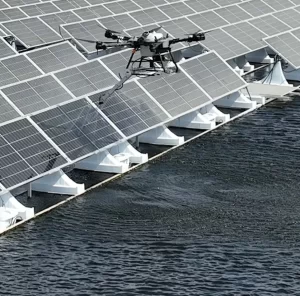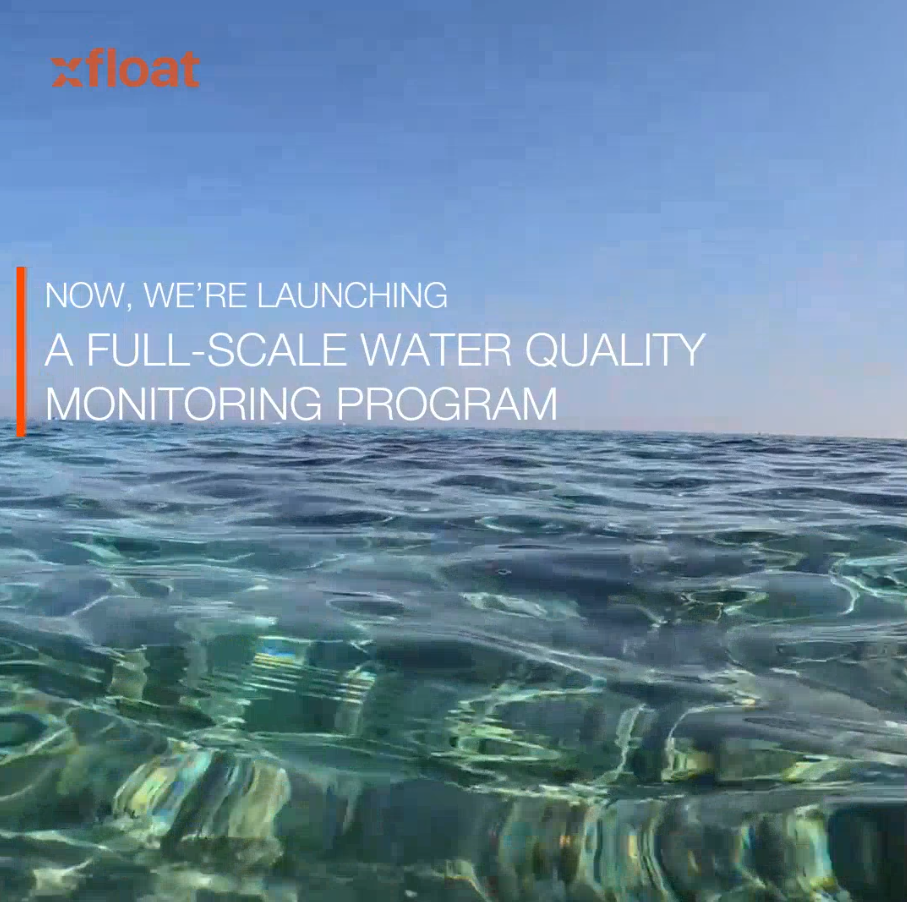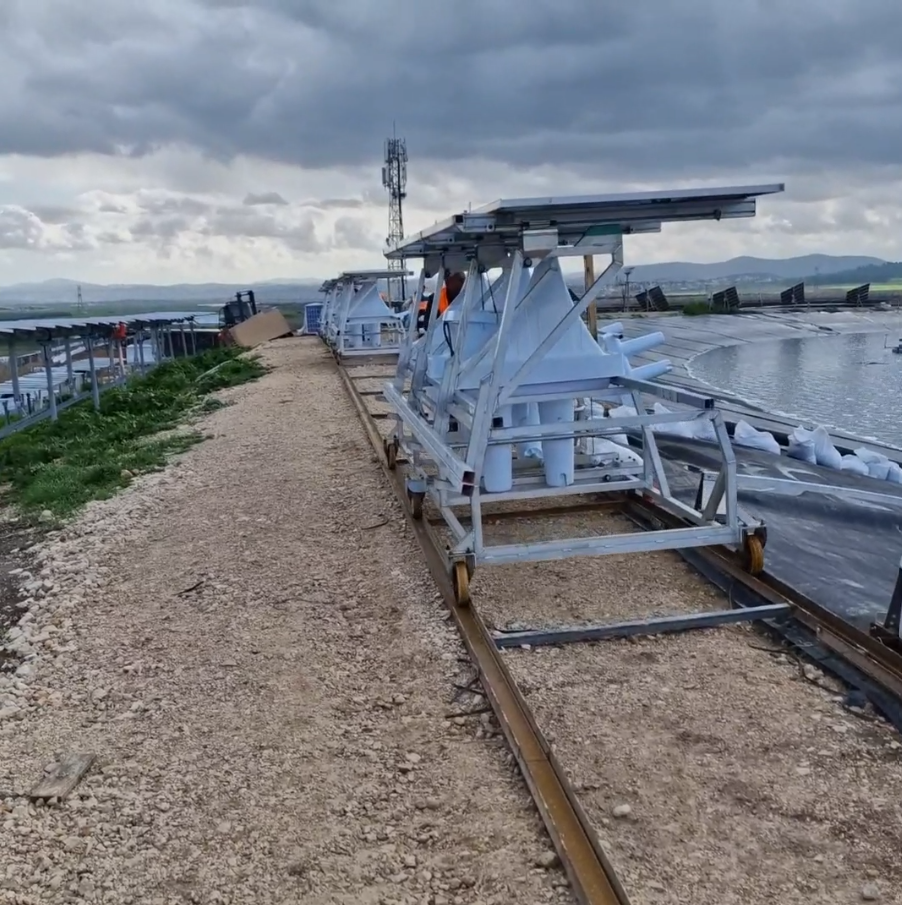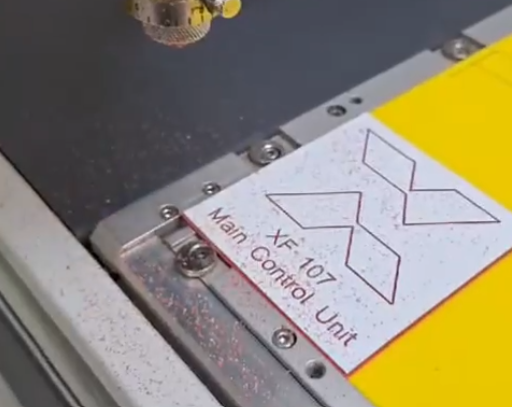Naturally, when PV modules are covered with dust, bird droppings, or other debris, their ability to absorb sunlight is compromised, leading to decreased energy production. Studies have shown that dirty solar panels can lose up to 25% of their efficiency. Prevention measures and regular cleaning ensures maximum sunlight absorption, leading to higher energy output and better return on investment.
 Some of the recent innovative cleaning techniques that are being used on Xfloat FPV installations involve drones and robots.
Some of the recent innovative cleaning techniques that are being used on Xfloat FPV installations involve drones and robots.
Some of the new cleaning drones tested handle battery and payload replacements and automatic water refills. The drones collect and analyze data in real time through encrypted cloud-based applications, ensuring effective and gentle cleaning of solar panels.
For the more robust cleaning work, the company has been testing and adapting a few robotic cleaning systems that move directly over the panels. These robots are equipped with rotating brushes and water dispensers and are designed to be lightweight and agile. A few low-cost robots like these can clean extensive panel arrays without causing damage and can be easily transported from one raw to another, manually or by an autonomous robotic vehicle running on the main maintenance walkway.
The robots can operate under various weather conditions and can be programmed to clean at regular intervals, ensuring the panels remain clean and efficient.


